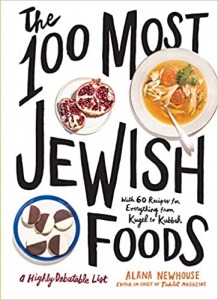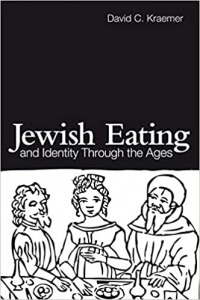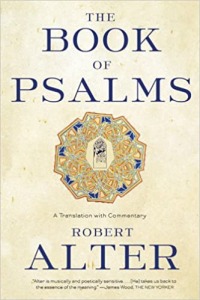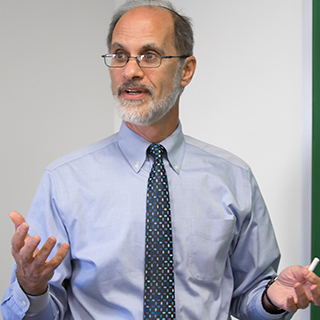One Congregation/One Book 5782
Food for the Body/Food for the Soul
| Click here to sign up for Food for the Body Track |
Click here to sign up for Food for the Soul Track |
This year there will be two tracks and a total of three books. (And yes, we are still calling it One Congregation/ One Book.) You can join either track, but it is best to do both.
Track 1: Food for the Body
We will explore the world of Jewish food by reading two books. First, we will read The 100 Most Jewish Foods: A Highly Debatable List. This book is anthology of essays on all things edible and Jewish. Consider it an appetizer for our main course, Jewish Eating and Identity Through the Ages, by David C. Kraemer. This book explores the tie between food and identity, examining not just what Jews eat, but also “how, when, and with whom they eat it.”
The 100 Most Jewish Foods is readily available in print or as an ebook (click here). Jewish Eating and Identity Through the Ages, is less easy to come by. Apologies for the high price of the ebook. Like a nice kugel or plate of hummus, we may want to share around some copies. It is the best book of its kind, so we will make do. Click here for information from Amazon. Let us know if you find other sources for the main course of Track 1.
 |
 |
Track 2: Food for the Soul
Our food for the soul will be Robert Alter’s The Book of Psalms: A Translation and Commentary. The Psalms have been our people’s constant companion in times of joy and sorrow. Join us as we spend a year in the world of the Psalms, seeing them in a new light through Alter’s beautiful translation and insightful commentary.
The book is available in print or as an ebook (click here).
 |
| Prof. David Kraemer will be joining us as a scholar-in-residence (via Zoom) March 11th and 12th. Click here for details. (This program is made possible through the generous sponsorship of the Salata Family.) |
See below for the schedule of check-ins and suggested reading schedules.
| Food for the Soul Track Check-in Dates | Food for the Body Track Check-in Dates |
|
October 24
– Sunday at 10:30 AM via Zoom |
November 21
– Sunday at 10:30 AM via Zoom |
|
October 27
– Wednesday at 12:30 PM via Zoom |
November 24 – Wednesday at 12:30 PM via Zoom |
| November 14 – Sunday at 10:30 AM via Zoom |
December 22 – Wednesday at 12:30 PM via Zoom |
| November 17 – Wednesday at 12:30 PM via Zoom |
January 23 – Sunday at 10:30 AM via Zoom |
| December 15 – Wednesday at 12:30 PM via Zoom |
January 26 – Wednesday at 12:30 PM via Zoom |
| January 16 – Sunday at 10:30 AM via Zoom |
February 23 – Wednesday at 12:30 PM via Zoom |
| January 19 – Wednesday at 12:30 PM via Zoom |
March 27 – Sunday at 10:30 AM via Zoom |
| February 16 – Wednesday at 12:30 PM via Zoom |
March 30 – Wednesday at 12:30 PM via Zoom |
| March 20 – Sunday at 10:30 AM via Zoom |
April 24 – Sunday at 10:30 AM via Zoom |
| March 23 – Wednesday at 12:30 PM via Zoom |
April 27 – Wednesday at 12:30 PM via Zoom |
| April 20 – Wednesday at 12:30 PM via Zoom |
|
| May 22 – Sunday at 10:30 AM via Zoom |
|
| May 25 – Wednesday at 12:30 PM via Zoom |
|
|
|
| Suggested Reading Schedule for Food for the Soul Track | Suggested Reading Schedule for Food for the Body Track |
| October – Psalms 1-20 | November – All of The 100 Most Jewish Foods, Chapter 1 of Jewish Eating |
| November – Psalms 21-40 | December– Chapters 2-3 |
| December – Psalms 41-60 | January– Chapters 4-5 |
| January – Psalms 61-80 | February– Chapters 6-7 |
| February – Psalms 81-100 | March – Chapters 8-9 |
| March – Psalms 101-120 | April– Chapter 10 |
| April – Psalms 121-140 | |
| May – Psalms 141-150 | |
About David Kraemer
| Professor Kraemer is both the Joseph J. and Dora Abbell Librarian and a professor of Talmud at the Jewish Theological Seminary of America. His scholarly work is focused on the literary analysis of rabbinic literature, rabbinic ritual, and the social and religious history of Jews in late antiquity. Professor Kraemer is a prolific author and commentator. In addition to his books, he has written influential articles on the biblical books of Ezra and Nehemiah, the Mishnah, and many other subjects. His latest book is A History of the Talmud, which was published by Cambridge University Press in 2019. |  |

